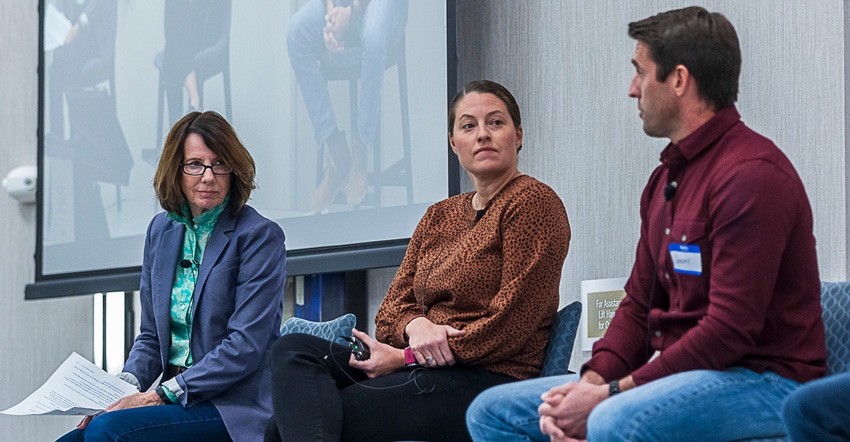
Start-up companies trying to convince produce farmers they can help solve food safety concerns are getting a leg up through a collaborative effort between organizations in two states.
Western Growers, the Center for Produce Safety, and Yuma Center of Excellence for Desert Agriculture (YCEDA), co-hosted the first of three AgTechX food safety summits to help the fledging companies understand the needs of the produce industry. The remaining summits will be held later in the year in Woodland, Calif., and the Salinas Valley.
At the gathering in Yuma, Ariz., companies heard from industry leaders about industry and regulatory issues that shape how produce growers and processors operate. They also heard advice from a respected University of Arizona researcher, who cautioned eager company representatives against hard-sell tactics and unannounced requests or visits without first developing solid relationships with those groups.
Food safety was at the heart of the meeting. The various cohorts, as Western Growers calls the start-up companies, have at their core ideas to help improve food safety practices, or at the very least, testing protocols that can give growers and processors real-time indications that there may be an issue to address.
Testing for and tracking of food safety concerns is a reactive process, said David Acheson, founder and chief executive officer of the Acheson Group, a global consulting firm that assists clients with practical food safety solutions. Conversely, growers like Jeremy Vanderzyl with Duncan Family Farms, and Richard Warsaw with GreenGate Fresh, would like to see a more proactive approach to address food safety in produce. A "soft-kill" step to reduce pathogens in produce was mentioned, but no specifics were offered.
Gaining trust
Channa Rock, a professor and Extension specialist with the University of Arizona who specializes in food safety and water quality, cautioned start-up companies to avoid hard-sell tactics.
"We're constantly reiterating the process of gaining and ensuring trust with our industry collaborators," she said. "That can't be stressed enough when (farmers) get approached by folks from academia or technology companies… they don't understand that you have to build that relationship and you have to learn about the industry."
Paul Brierley, executive director of YCEDA, echoed that sentiment. He once had a researcher come to him with a cold-call request to try a piece of technology out on a commercial food processing line. The researcher wanted an introduction to a food processor.
"I'm like, 'no, you can't just come try something on a product line'," Brierley said.
Trust and understanding of commercial systems must first be developed.
"I think another thing that happens is that folks come in, they fly in and then they fly out," Rock continued. "They come in and do their research then they're gone, and the industry never sees them again. What is that going to do for that trust building over time?"
Rock encouraged companies to be willing to "get their boots dirty" and spend time learning and understanding commercial systems, and the needs of growers and processors.
What the industry wants
Helping produce farmers and processors shorten the testing time for pathogens is critical, according to several of those speaking at the Yuma event. Still, preventative measures that can assure producers, the public, and perhaps more importantly, the Food and Drug Administration who regulates these operations, are important as well. Better understanding of how pathogens that lead to foodborne illnesses wind up in fresh produce and how to prevent them – a proactive approach – was said to be key to addressing food safety concerns.
"There is a sense of urgency about how we can accelerate solutions," said Dennis Donohue, director for the Center of Innovation and Technology with Western Growers Association. "We've chosen a place to plant our flag, primarily around testing and rapid diagnostics; along the way we hope to attract other companies and solution providers around traceability."
About the Author(s)
You May Also Like






